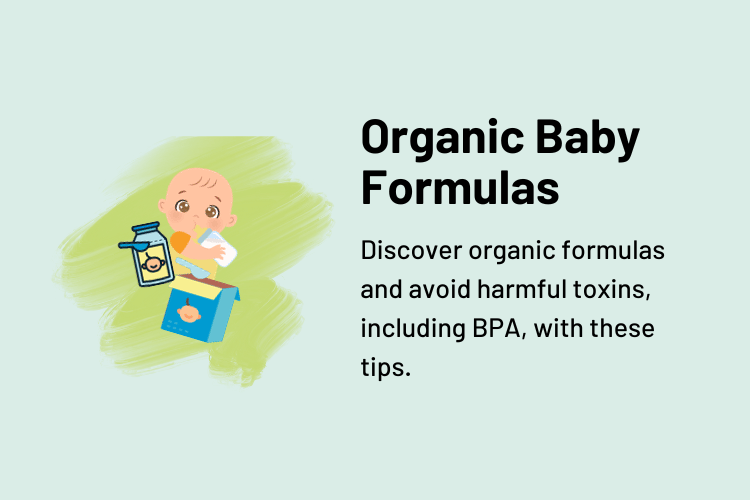
While breastfeeding your baby is by far the healthiest, most eco-friendly choice you can make, there are circumstances in which it is not possible. In such cases, finding natural and organic baby formula is a must in order to safeguard your baby’s health. Read on to learn why you should choose organic baby formula.
This article covers the following:
Why conventional baby formula is unhealthy
Despite the disadvantages of formula feeding your baby (cost, environmental concerns, maternal and baby health being chief among them), there can be several advantages to choosing formula over breastfeeding. For one, it can be more convenient, especially if the mother needs to be away from the baby for longer than a few hours. Formula is also digested more slowly which means the frequency and timing of feedings can be extended. Some formulas even contain nutritional additives that a breastfed baby would otherwise get from supplements.
Many people are calling conventional baby formulas the junk food of the infant world because they are prepared with ingredients that make them far from healthful.
- Many formulas are sweetened with lactose, fructose, glucose, and maltodextrin, with some even containing high fructose corn syrup.
- Salmonella and other foodborne pathogens have been found in some formulations.
- Packaging used to ship formula has been shown to contain contaminants like isopropyl-thioxanthone (ITX; another suspected carcinogen), phthalates (endocrine disruptors), and bisphenol A (BPA; a hormone disruptor). BPA in baby formula is an especially bad problem for liquid varieties.
- Heavy metals like lead, aluminum, and cadmium have all been found in baby formulas.
- If your tap water is not safe to drink, any contaminants it contains will be passed along to your baby when you mix it with formula.
- Buying formula can set you back several thousands of dollars during the first year of your baby’s life. Unfortunately, organic formulas can cost even more than this.
- Though they will provide basic nutrition, manufactured formulas cannot yet be made to match the nutritional complexity of breast milk.
- A fungal toxin called aflatoxin has been found in formulas – this can cause cancer.
- Soy formulas contain plant-derived estrogens that can be at dangerous levels for babies.
- Melamine, which can kill babies, has been found in trace amounts in some baby formulas.
- Perchlorate, which inhibits the healthy function of the thyroid in adults and babies alike, has been found in baby formulas from cow’s milk, soy milk, as well as from tap water.
What to look for while choosing organic baby formula
There are many things you can do to ensure that your choice of formula feeding your baby is both safe and natural, including the following:
- Choose powdered formula over liquid formula to avoid the possibility of finding BPA in your baby’s food. Or ideally, look for a BPA-free seal while choosing organic baby formula.
- Look for Certified Organic formulas such as those with the USDA Organic logo.
- While mixing formula with water, be sure to mix it with safe water to avoid contaminants from your tap water.
- Read ingredient lists and avoid formulas with a lot of additives, especially sweeteners.
Several quality natural infant formula brands are now on the market that are formulated with Certified Organic ingredients and without the harmful toxins and ingredients mentioned above.
However, to be safer, it is wise to keep an eye on the updates provided by the authorities. For example, regarding infant formula, all the latest news, alerts, investigation results, and FAQs can be easily accessed through this link of the FDA.
Making your own homemade baby formula
Creating your own natural baby formula offers the advantage of regulating its composition. Nevertheless, it is essential to acknowledge that homemade formulas pose considerable concerns, including substantial nutritional disparities and the risk of producing unsafe products that may endanger infants.
Due to the potentially very serious health issues, the FDA does not recommend the production of infant formulas in home settings. Therefore, exercising caution is strongly advised before embarking on the path of making your own baby formula. It can be difficult to develop a nutritionally complete homemade formula on your own.
